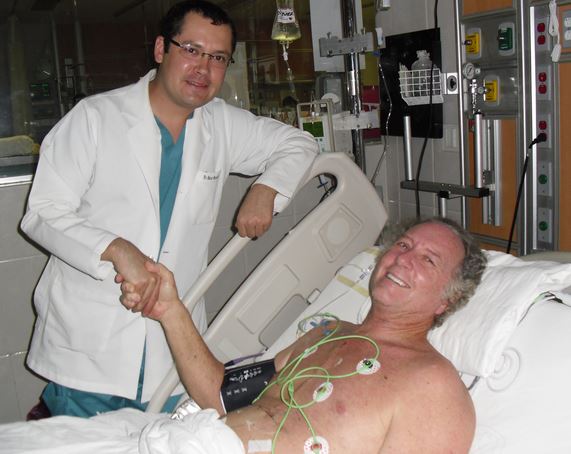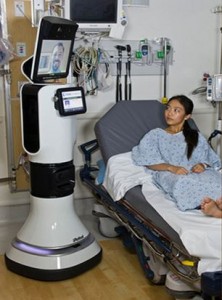September 15th, 2014 by Dr. Val Jones in Opinion
2 Comments »
 Judging from recent articles, surveys, and blog posts, the medical profession is remarkably demoralized. Typical complaints range from “feeling like a beaten dog” to “living in humiliating servitude,” to being forced to practice “treadmill medicine.” Interestingly, the public response to these complaints is largely indifferent. The prevailing attitude (if the “comments sections” of online articles and blog posts are representative) seems to be unsympathetic: “Poor doctors, making a little less income and not being treated like gods anymore? You have to do extra paperwork? You have to work long hours? Welcome to the real world, you whiners!”
Judging from recent articles, surveys, and blog posts, the medical profession is remarkably demoralized. Typical complaints range from “feeling like a beaten dog” to “living in humiliating servitude,” to being forced to practice “treadmill medicine.” Interestingly, the public response to these complaints is largely indifferent. The prevailing attitude (if the “comments sections” of online articles and blog posts are representative) seems to be unsympathetic: “Poor doctors, making a little less income and not being treated like gods anymore? You have to do extra paperwork? You have to work long hours? Welcome to the real world, you whiners!”
But thank goodness that practicing medicine is more nuanced than the Facebook stream of hostility that we are subjected to on a daily basis. If patients spoke to me the way online comments read, I’d surely have quit medicine years ago. But my reality is that patients are generally grateful, attentive, and respectful. This could be because I work in inpatient rehabilitation medicine, a place where patients are screened for motivation to participate in their care, but I don’t think that’s the whole story. I have experience working in other settings across the country (including Emergency Departments), and I have found a significant number of good-natured, engaged patients there too.
I think that to some degree our attitudes shape our work environments. Patient and peer dispositions are in part a reflection of our own. Try approaching a frightened, sick patient with an arrogant, dismissive tone and see how your professional relationship with them (and their families) develops. There is a negative cascade that physicians can trigger (perhaps unwittingly) when they are rushed, curt, or inattentive. Beginning every new patient relationship with a caring, respectful, detailed history and physical exam lays a foundation of trust for future interactions. Once you have established that positive rapport, the daily grind (along with what my friend, Dr. Steve Simmons, has nicknamed ‘C.R.A.P.P.’ – Continuous Restrictive And Punitive Paperwork) is much more bearable.
As physicians we have the power to make our careers as meaningful or soul-sucking as we choose. Reducing the C.R.A.P.P. in our work lives can help (I’ve tried outpatient, “concierge style” practices and inpatient locum tenens assignments with good success), but that’s not the most important factor in enhancing work satisfaction. The relationships built by allying ourselves with patients, and shepherding them through this broken system, are where the rewards lie. They hold the keys to our professional fulfillment because nothing can beat the joy of helping those in need.
How do I know that patient appreciation is enough to make medicine worthwhile?
Because I still don’t hate being a doctor.
October 21st, 2013 by Dr. Val Jones in Opinion
9 Comments »

A "Medical Service Provider"
As I sat in my orthopedist’s exam room, the discussion quickly turned from my chief complaint to his: “I don’t know why I’m doing this anymore,” he said. “Medicine is just not what it used to be, and I don’t enjoy my work anymore. The bureaucracy and regulations are bad enough, but what really gets me is the hostility. My patients are chronically angry and mean. The only comfort I get is from talking to other doctors. Because they all feel the same way.”
Perhaps this sentiment strikes you as the spoiled musings of a physician who is lamenting his demotion from “god” to “man” – reflecting the fundamental change in the public perception of doctors that has occurred over the past ~50 years. Or maybe you wonder if this surgeon’s patients are mean because he is a bad doctor, or isn’t respectful of their time? Maybe he deserves the hostility?
I’ve found this particular surgeon to be humble, thoughtful, and thorough. He is genuinely caring and a proponent of conservative measures, truly eager to avoid surgical procedures when possible. He is exactly what one would hope for in a physician, and yet he is utterly demoralized. Not because of the hours of daily documentation drudgery required by health insurance and government regulators, but because the very souls he has been fighting to serve have now turned on him. Their attitudes are captured in social media feeds on every major health outlet:
Doctors? I no longer afford that kind of respect: I call them “medical services providers.” They and their families and the medical cabal created this mess when they got control of med schools so that the wealth of a nation would remain in the hands of a few medical elites and their families. The very notion that doctors are smarter, more productive, more anything than others is ludicrous. They are among the worst sluff-offs of our society, yet the richest at the same time. It is an unreal world they have created themselves and they are now watching the natural outcome of such a false system.
The very best physicians have always been motivated primarily by the satisfaction of making a difference in their patients’ lives. That drive to “help others” is what makes us believe that all the sacrifices are worth it – the years of training, the educational debt, the lack of sleep, the separation from family, the delay (and sometimes denial) of becoming a parent, the daily grind of administrative burden, the unspeakable emotional toll that death and disease take on your heart… All of that is offset by the joy of changing and saving lives. But when that joy is taken from you, what remains is despondency and burn out.
What patients need to realize is that they have been (and still are) the primary motivator of physician job satisfaction. Patients have the power to demoralize us like no one else – and they need to take that power very seriously. Because if negative attitudes prevail, and hostility spreads like a cancer in our broken system, the most caring among us will be the first to withdraw.
And in the end all that will be left is “medical service providers.”
January 18th, 2011 by KevinMD in Opinion, Research
No Comments »

I wrote last year in USA Today about the impact of physician burnout. Not only do doctors suffer, but so do their patients.
Burnout starts early in residency, with entering interns having a depression rate of 4 percent, similar to the general public. But after the first year of residency, that number balloons to 25 percent.
Now another study adds fuel to this disturbing trend. A paper published in the Archives of General Surgery looks at the prevalence of physician burnout in surgeons:
In a national survey, one in 16 surgeons reported contemplating suicide, researchers reported.
An increased risk of suicidal ideation was linked to three factors: depression, burnout, and the perception of having made a recent major medical error …
… But only about one in four of those who reported thinking about taking their own lives sought psychiatric or psychologic help.
The rate of suicidal ideation in surgeons, at 6.3 percent, was almost double of that in the general population (3.3 percent).
Physician burnout is a phenomenon that’s often ignored. The practice environment is deteriorating, with increasing time pressures and worsening bureaucratic burdens. Little of this is addressed in the national health conversation, or in the recently passed health reform law. Read more »
*This blog post was originally published at KevinMD.com*
May 14th, 2010 by KevinMD in Better Health Network, Humor, Medical Art, Opinion
No Comments »

What awaits some physicians who decide to quit medicine:

Source: A Cartoon Guide to Becoming a Doctor
*This blog post was originally published at KevinMD.com*
 Judging from recent articles, surveys, and blog posts, the medical profession is remarkably demoralized. Typical complaints range from “feeling like a beaten dog” to “living in humiliating servitude,” to being forced to practice “treadmill medicine.” Interestingly, the public response to these complaints is largely indifferent. The prevailing attitude (if the “comments sections” of online articles and blog posts are representative) seems to be unsympathetic: “Poor doctors, making a little less income and not being treated like gods anymore? You have to do extra paperwork? You have to work long hours? Welcome to the real world, you whiners!”
Judging from recent articles, surveys, and blog posts, the medical profession is remarkably demoralized. Typical complaints range from “feeling like a beaten dog” to “living in humiliating servitude,” to being forced to practice “treadmill medicine.” Interestingly, the public response to these complaints is largely indifferent. The prevailing attitude (if the “comments sections” of online articles and blog posts are representative) seems to be unsympathetic: “Poor doctors, making a little less income and not being treated like gods anymore? You have to do extra paperwork? You have to work long hours? Welcome to the real world, you whiners!”












